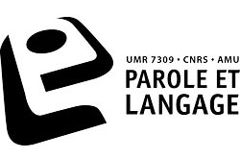Parution
Cristel Portes et James German, enseignants-chercheurs à Aix-Marseille Université et rattachés au Laboratoire Parole et Langage, viennent de publier un article scientifique dans la revue officielle de l'Association for Laboratory Phonology. Cette étude montre que des indices implicites de la région géographique (Corse vs. Continent) influencent l'interprétation d'un contour intonatif comme une question vs. une assertion par les locuteurs corses du français. La théorie des exemplaires est utilisée pour modéliser comment cet effet est lié au degré de contact d'un individu avec le français continental.
Référence
Portes, C., & German, J. S. 2019 Implicit effects of regional cues on the interpretation of intonation by Corsican French listeners. Laboratory Phonology: Journal of the Association for Laboratory Phonology 10(1): 22, pp. 1–26.
Accès à l'article en accès libre
DOI: https://doi.org/10.5334/labphon.162
Abstract
It is now well documented for different varieties of English that the speech production and perception systems rapidly adapt to contextual social cues. This adaptation is sensitive not only to speaker social identity but also to implicit social cues, suggesting that the underlying mechanism is automatic rather than controlled. While it has recently been shown that the interpretation of intonation depends on segmental cues to sociolect within the same utterance, the present study explores whether it also depends on implicit contextual social cues. Starting from the observation that a specific type of intonational contour is used differently in Corsican French and Continental French, we tested whether Corsican French listeners interpret this contour differently depending on which dialectal region is evoked by a visual cue. The results are consistent with this hypothesis, thus providing evidence for implicit social adaption in a new domain of linguistic behavior, specifically, the prosody-meaning interface. We describe an exemplar-based model of our results demonstrating that such models can be readily extended to capture the effects found by the present study.
Keywords Intonation, sociophonetics, speech perception, implicit social adaption, Corsican French








